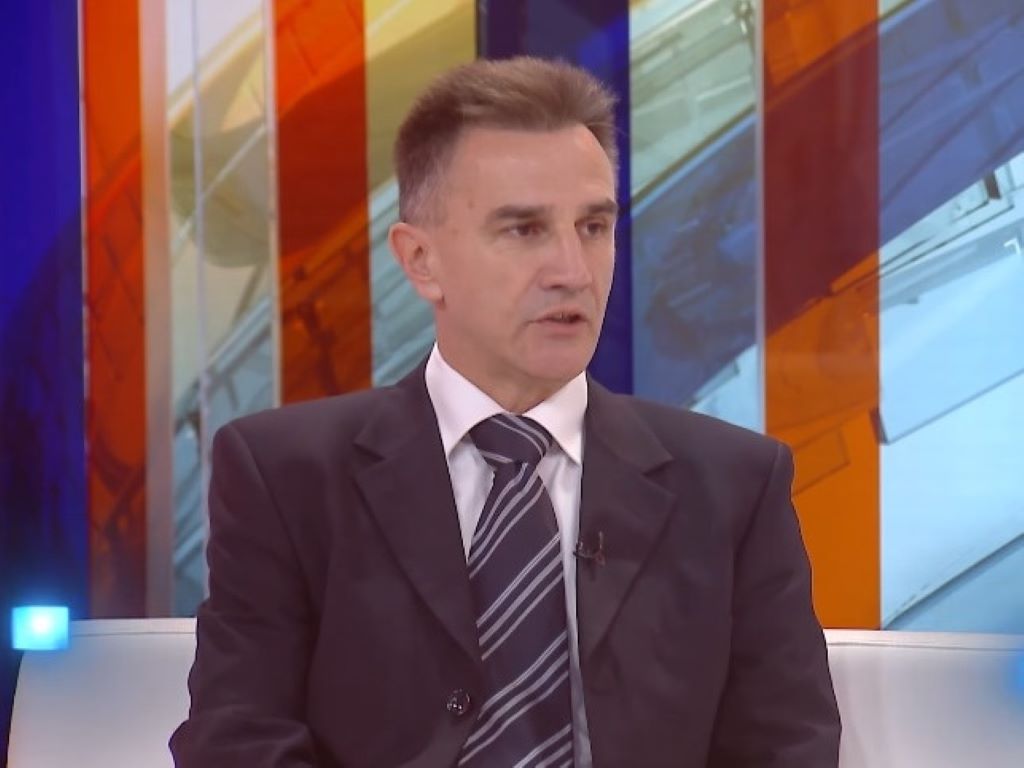ANTIC: Money to Remain Cheap for a Long Time
Source: Beta
 Monday, 22.02.2021.
Monday, 22.02.2021.
 09:26
09:26
 Monday, 22.02.2021.
Monday, 22.02.2021.
 09:26
09:26
Economist Srboljub Antic (Photo: YouTube/Screenshot)

– All the elements that have led to the lowering of interest rates are still there. The first one is the inflation, which is no longer one of the main economic problems, and interest rates were the main instrument of the monetary policy in fighting the inflation. The second is the need to finance huge deficits in developed countries, which moves the focus of monetary policy to the generous offer of cheap money – Antic said for Magazin Biznis.
He pointed out that the public debts of developed countries were growing and that it was therefore difficult to believe that the political elites would opt for a more substantial growth of interest rates.
– After each big crisis, the circumstances of doing business are changing. The negative experience of the crisis from 1929, when the restrictive monetary policy deepened and extended the crisis, changed the way economic authorities behaved. It became usual to implement a combination of an expansive monetary and fiscal policy, with a lowering of interest rates, during the crisis and in the post-crisis period – Antic said.
When asked what can be expected if the global economy recovers fast, he said that, in that case, the central banks of anchor currency countries and the European Central Bank (ECB) would first slow down the growth of the money offer, whereas a more active use of interest rates could be expected in a somewhat longer term.
Commenting on the data of the World Bank and the International Monetary Fund (IMF) that the global debt had exceeded the GDP, Antic pointed out that this shouldn’t be cause for worry, because, according to the creators of economic policies in the USA and the EU, it is not the level of the public debt that is important, but the ability to service that debt.
– This entails the refinancing and paying of the interest rate, whereby the refinancing is largely entrusted to the central banks. The payment of interest rates has so far not been a problem for developed countries, but the situation could be different in countries with a low per capita income – said Antic, formerly the standing representative of Serbia at the IMF and the minister of mining and energy in the transitory government in 2000.
He believes that, in the conditions of low nominal interest rates, which are often close to zero, the interest rates on Serbia’s loans cannot be considered favorable.
– It is worrying whenever any authority in Serbia boasts about taking out loans, as if it were a positive act in itself – Antic emphasized and added that, in the conditions of a crisis, especially the kind of crisis that is not caused by economic policy errors, it was justified to use fiscal expansion, that is, to increase the public debt, over a short period, but that it was important for that fiscal expansion to have its limits.
As he said, the Covid-crisis affected Serbia at the time when the country had high levels of state deposits due to having given the Belgrade Nikola Tesla Airport up for concession and the relatively stable finances as a result of the previous fiscal consolidation.
– This allowed the state to be generous in aiding the economy last year. The announcement of new aid this year can be partially financed by selling one of the state banks. This means that the public debt will not increase by the amount equal to the aid, but by a slightly lower amount – Antic said.
He estimated that it would be ideal for the growth and development for Serbia to have a balanced budget in the long term, in which case there would be no need to borrow more and a gradual lowering of the tax charges on the economy, with a matching lowering of state expenditures, could start.
Companies:
 European Central Bank Germany - Evropska Centralna Banka
European Central Bank Germany - Evropska Centralna Banka
 Međunarodni monetarni fond - MMF Beograd
Međunarodni monetarni fond - MMF Beograd
Tags:
European Central Bank
ECB
Srboljub Antić
money
value of money
interest rates
lowering of interest rates
gross domestic product
GDP
public debt
low interest rates
deficits
public debt level
Covid crisis
fiscal consolidation
Comments
Your comment
Full information is available only to commercial users-subscribers and it is necessary to log in.
Follow the news, tenders, grants, legal regulations and reports on our portal.
Registracija na eKapiji vam omogućava pristup potpunim informacijama i dnevnom biltenu
Naš dnevni ekonomski bilten će stizati na vašu mejl adresu krajem svakog radnog dana. Bilteni su personalizovani prema interesovanjima svakog korisnika zasebno,
uz konsultacije sa našim ekspertima.


 Izdanje BiH
Izdanje BiH Izdanje Crna Gora
Izdanje Crna Gora Izdanje Srbija
Izdanje Srbija Serbia Edition
Serbia Edition Serbische Ausgabe
Serbische Ausgabe


 News
News






